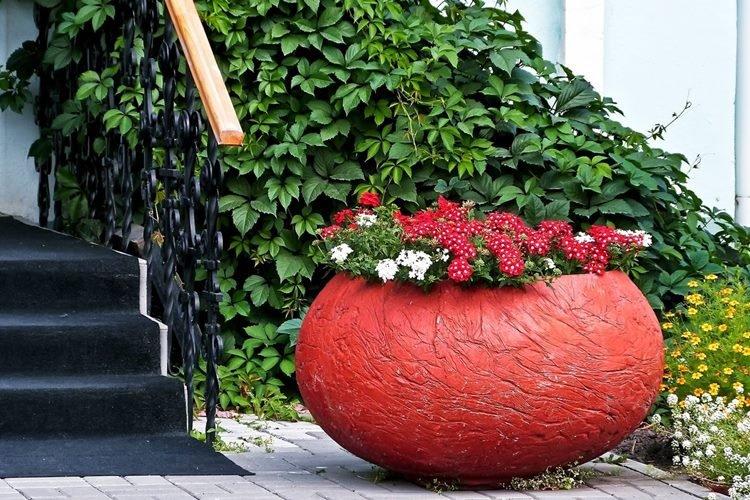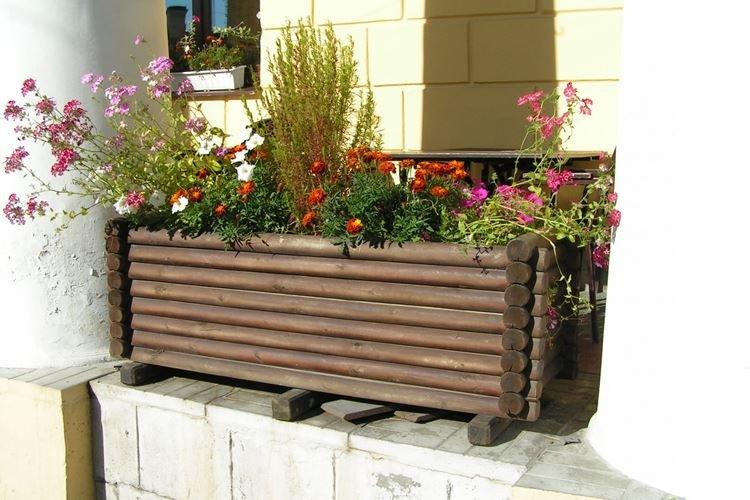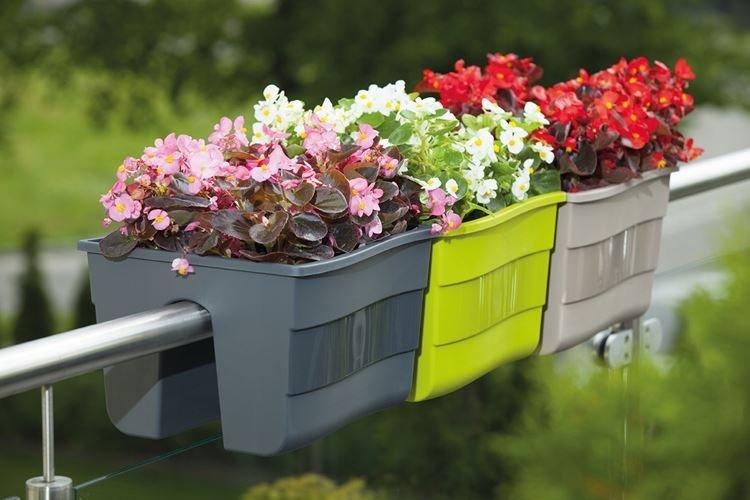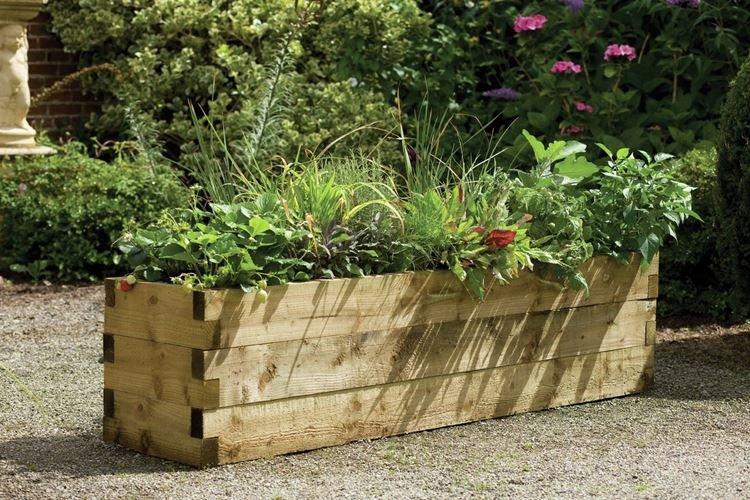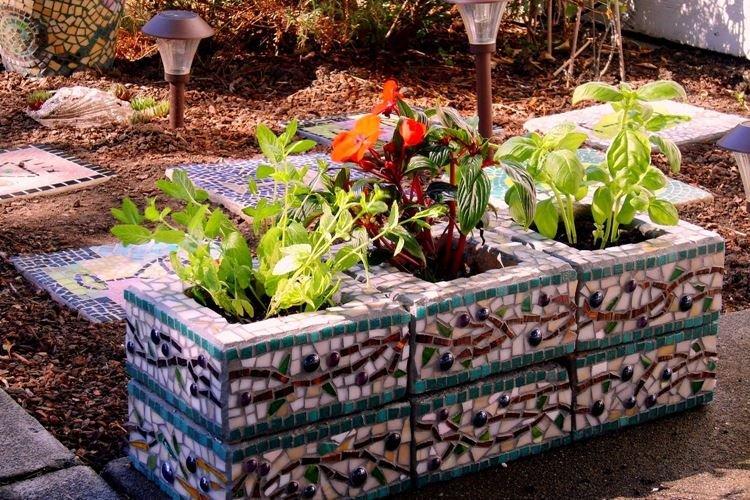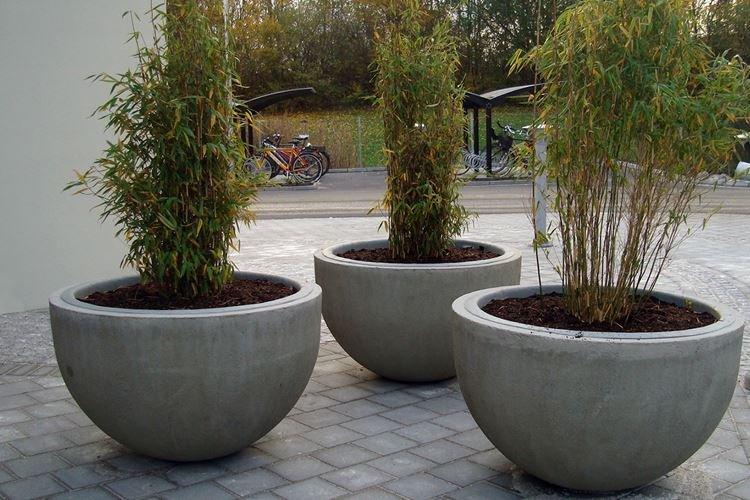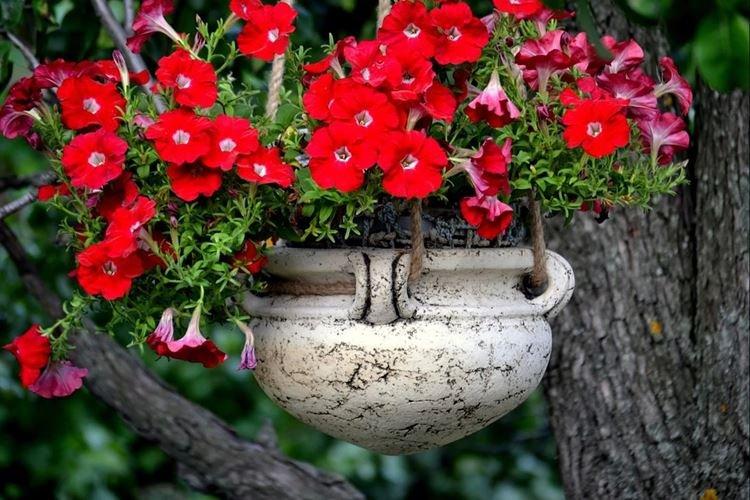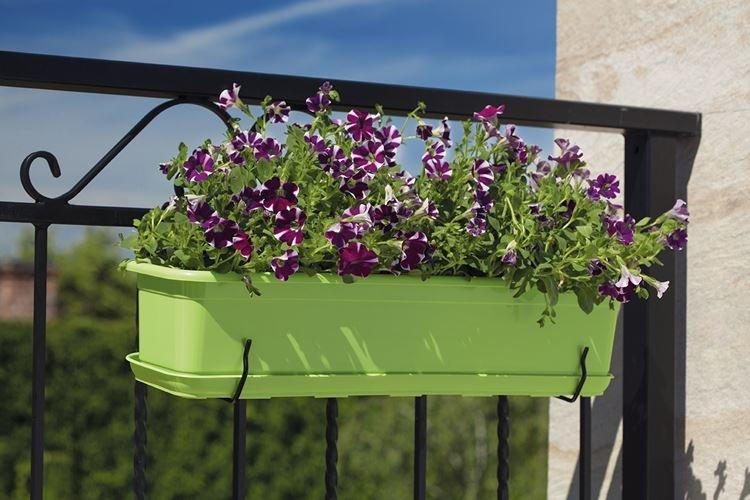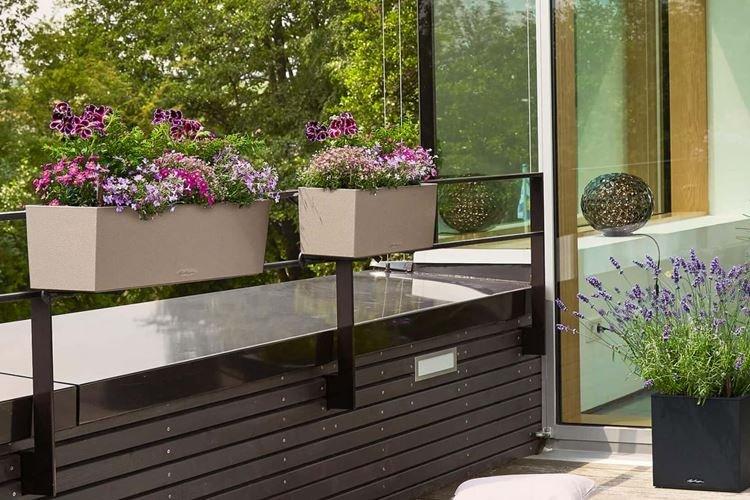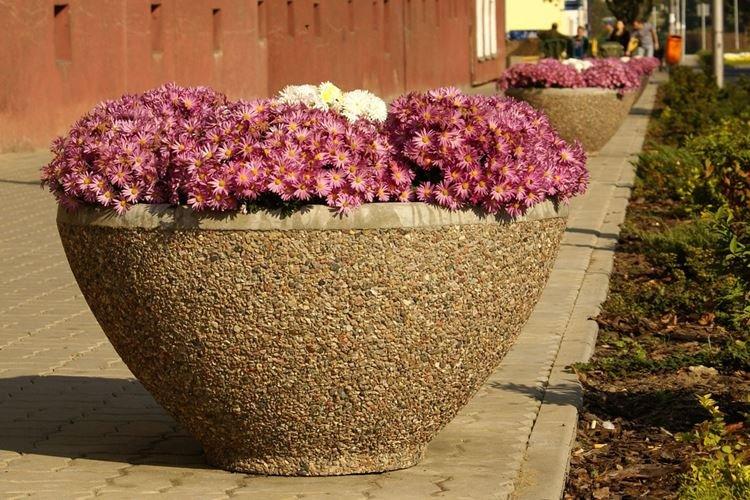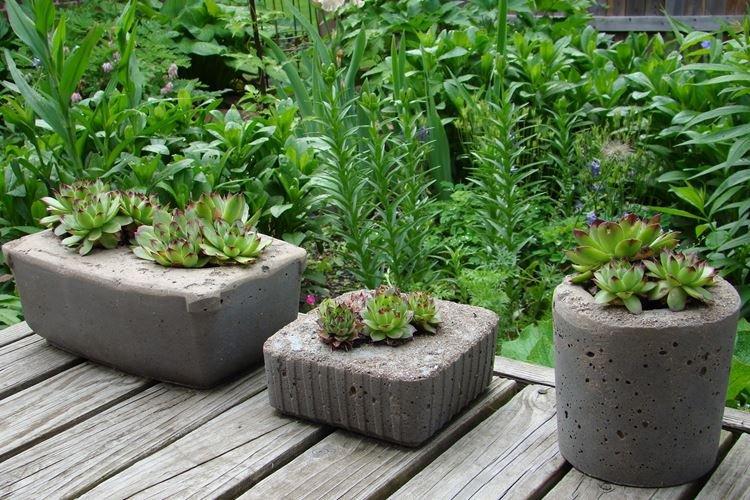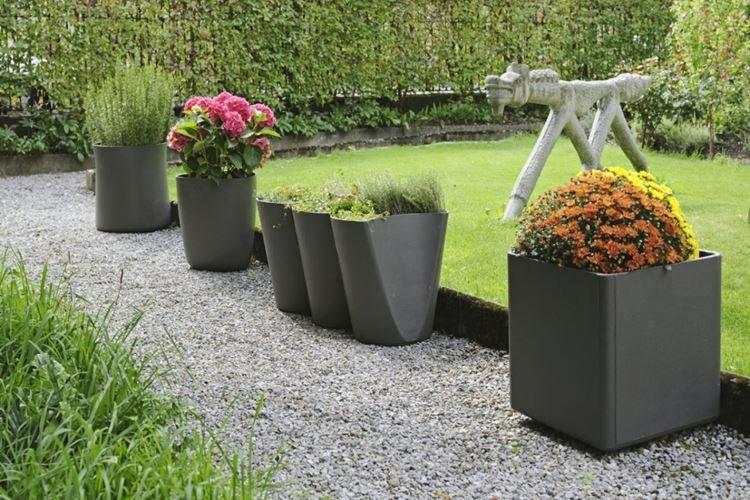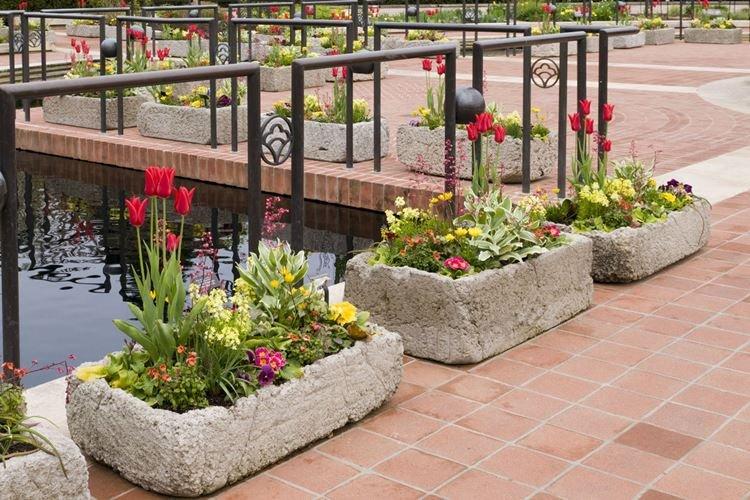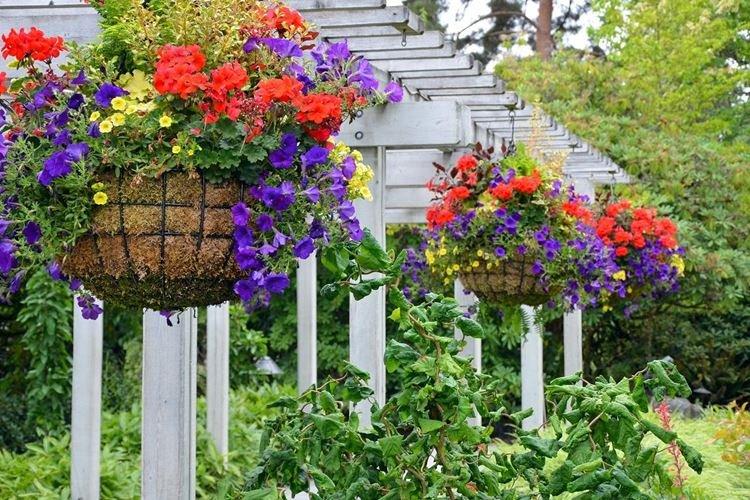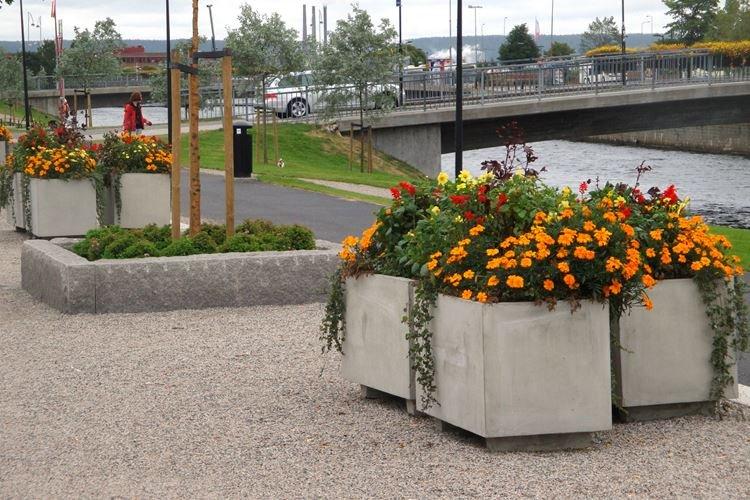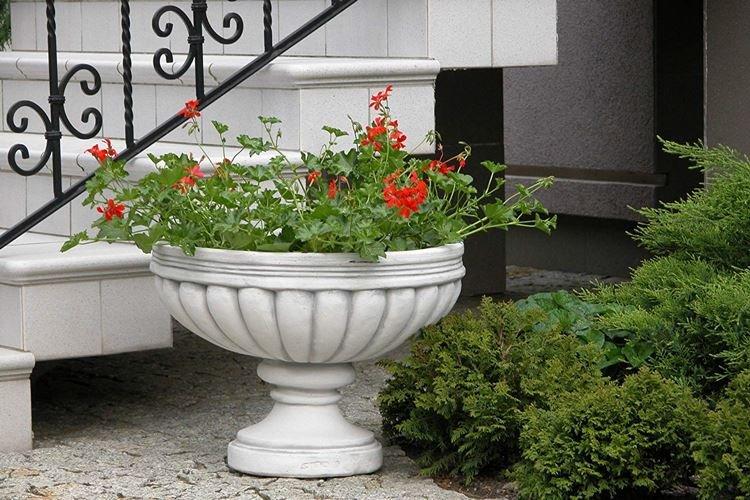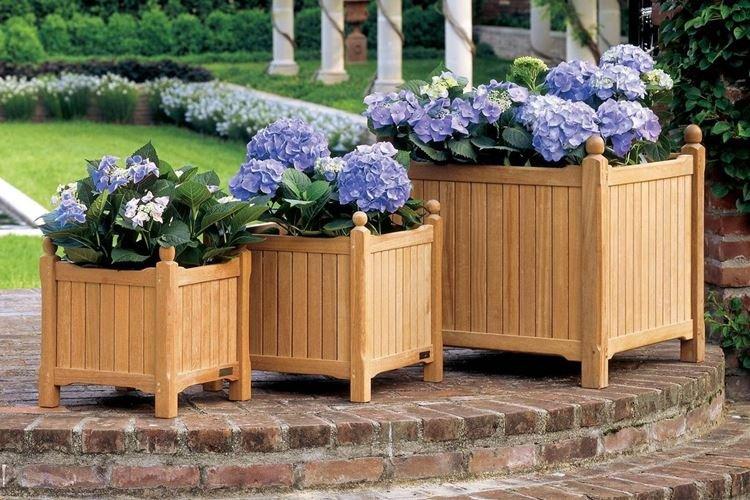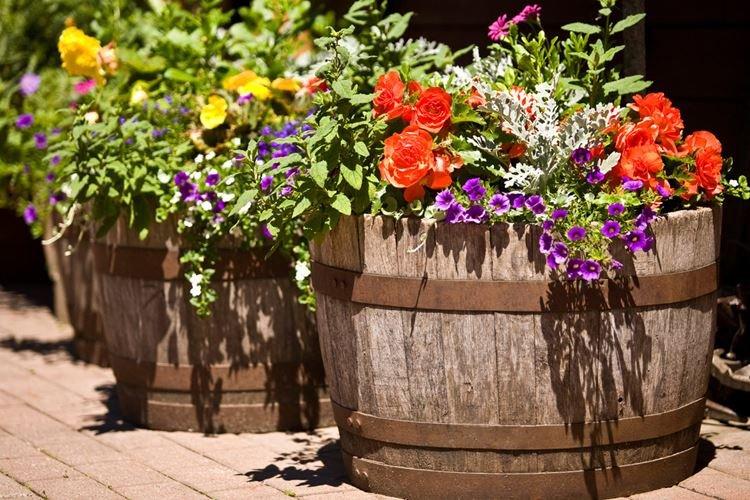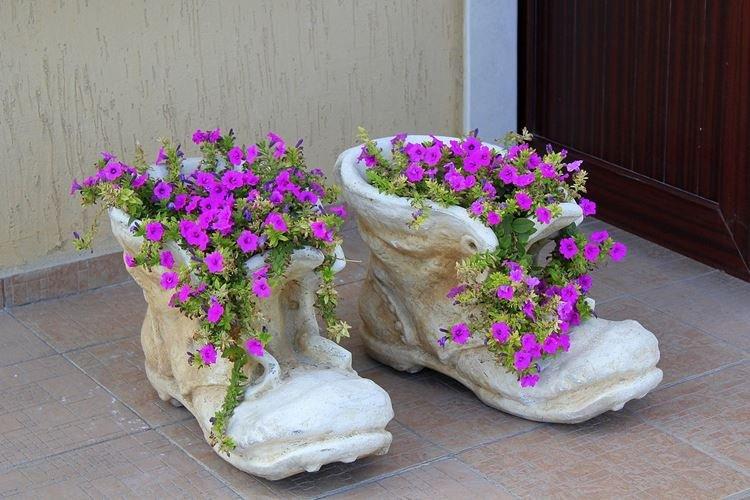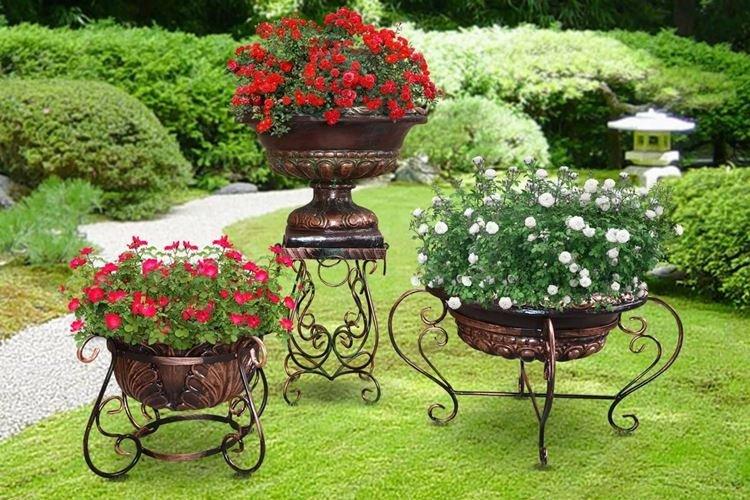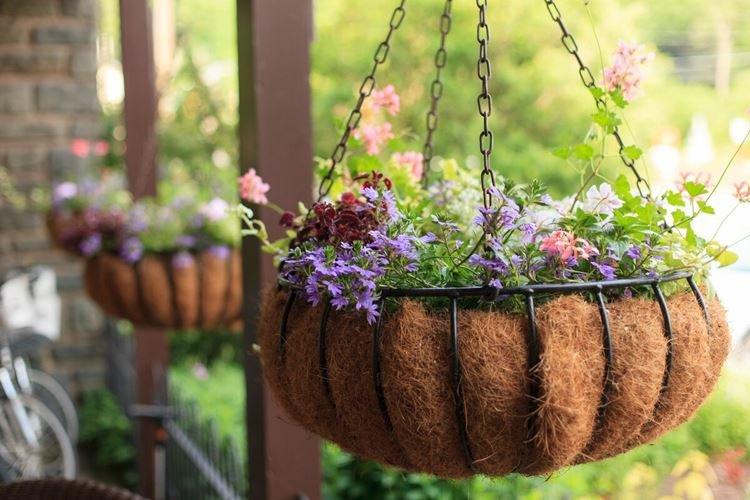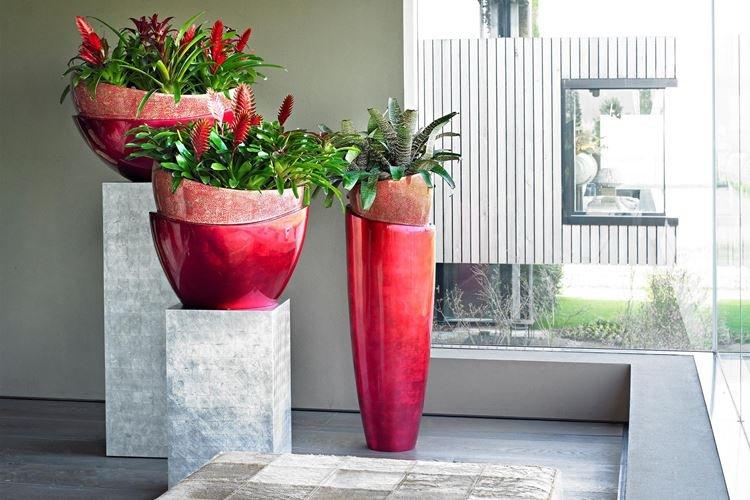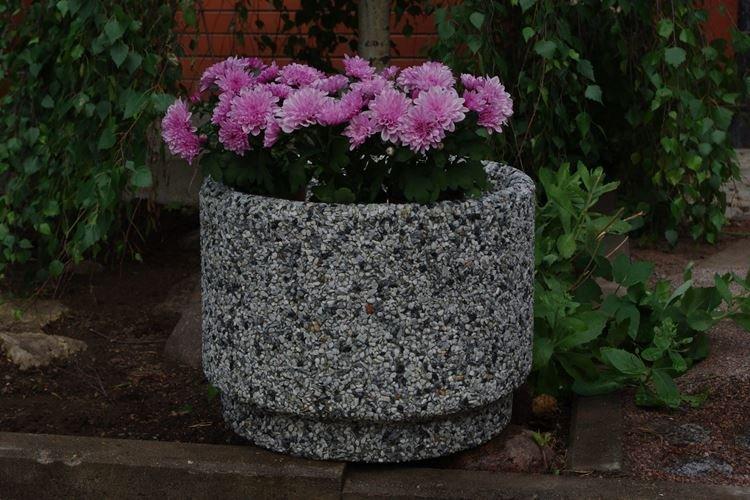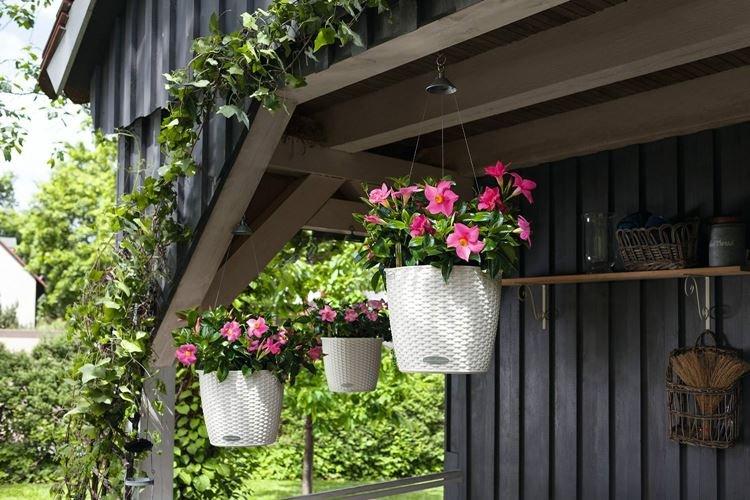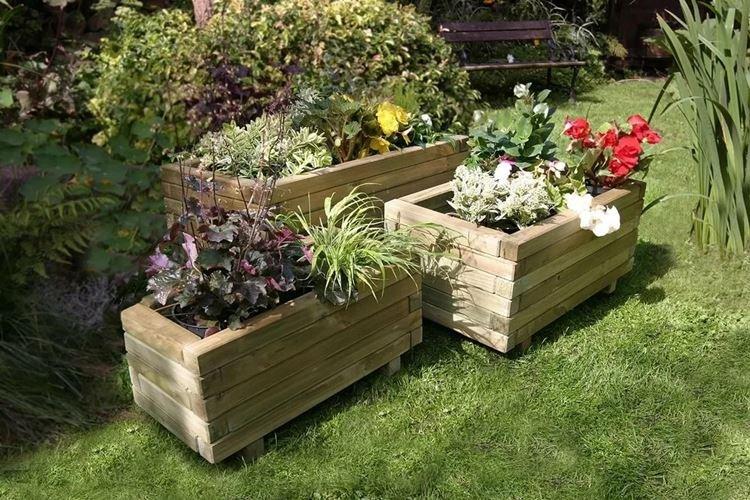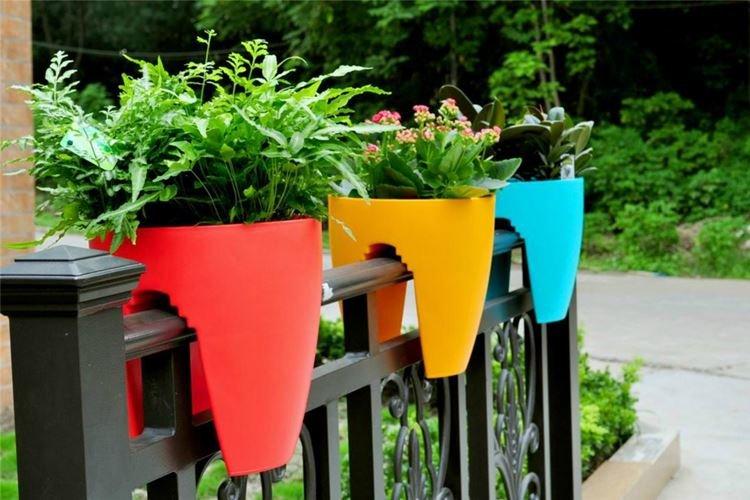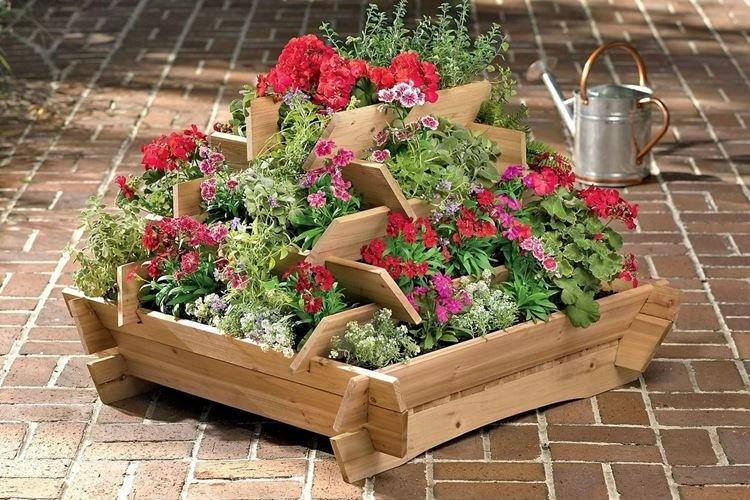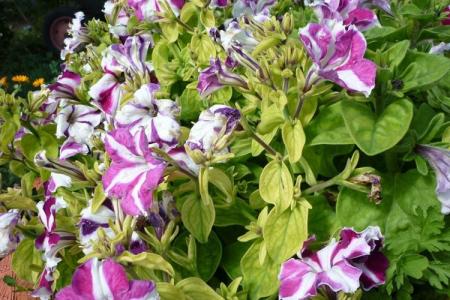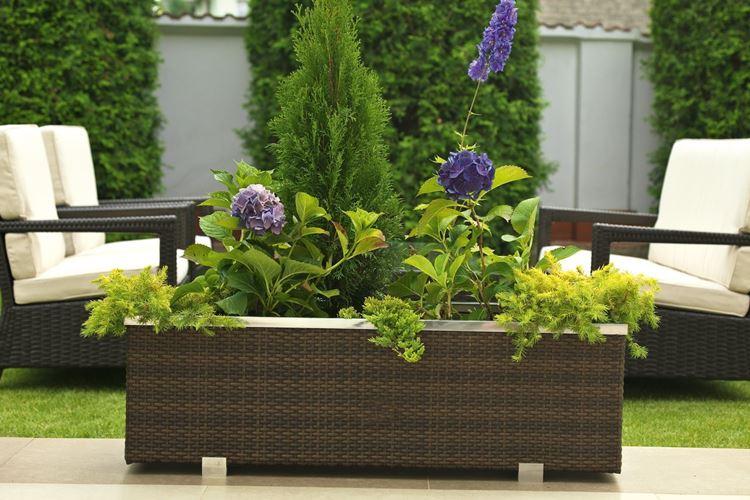
A beautiful flower garden on the site is by no means only flower beds or variegated shrubs. Why limit yourself to conventions if there are such convenient and practical outdoor flowerpots? Moreover, they can be made with your own hands even from simple improvised materials: from boards to old tires. Let's tell!
Types of outdoor flowerpots
Like indoor pots, outdoor flowerpots can be of any shape and configuration. Large containers are placed instead of a fence, for zoning a site or just for beauty. This is the easiest way to create changing conditions and soil for different flowers.
Floor standing
Floor pots are easy to transport and can be placed around the yard on tiles or concrete. This is a good alternative to tall beds if the soil is poor. To care for the seedlings, you do not have to constantly bend over, which is very convenient for back problems.
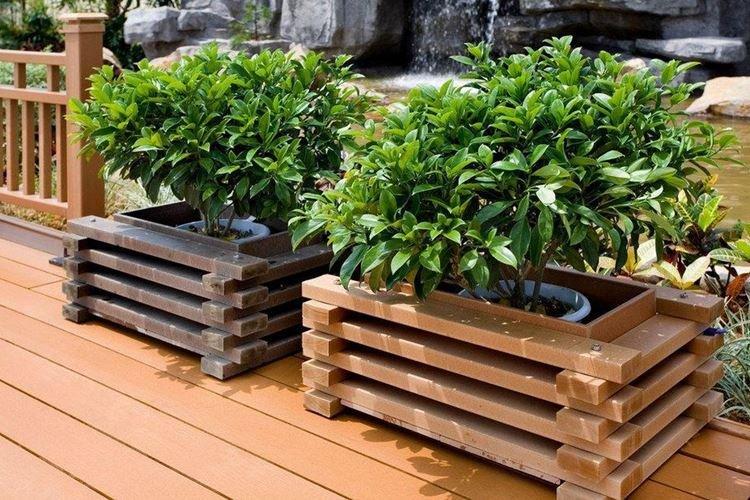
Suspended
Hanging flowerpots are very beautiful and romantic, they create an atmosphere of airiness and lightness. They pair beautifully with hanging garden lights or decorative garlands. It is the best choice for climbing, climbing and ampelous plants.
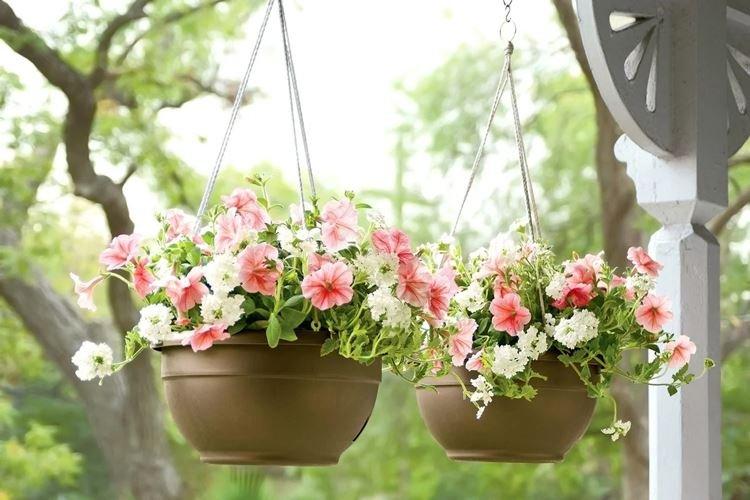
Materials (edit)
Literally everything is used for manufacturing - it is enough to take care only of good drainage. So choose the options that are more convenient for you personally. And make sure that they fit into the design and aesthetics of your site, complement the landscape composition and harmonize with the facade and other finishing materials.
Plastic flowerpots
Plastic is lightweight, practical and very cheap, and it can also be of any shape and color. These pots are easy to rearrange to a new place, and then you can take it indoors. But plastic does not fit very well with classic or rustic exteriors, is short-lived and not at all environmentally friendly.
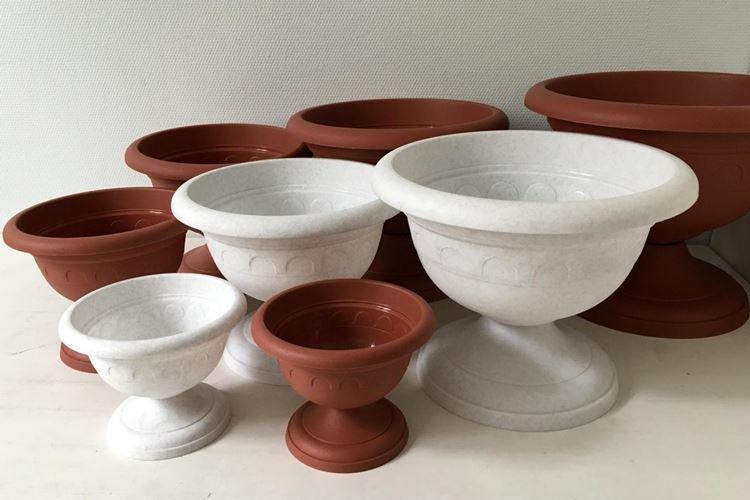
Wooden flowerpots
Wood is not very durable for outdoor flowerpots, because constant contact with moisture destroys its structure. But on the other hand, such containers always look very nice and fit into any landscape. The main thing is to take care of the processing of wood from rot, mold and mildew - this will extend the life of the flowerpot.
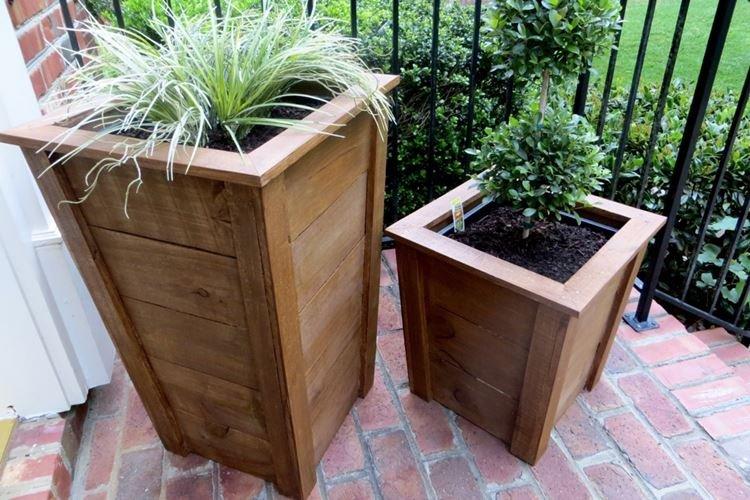
Metal flowerpots
Spectacular wrought iron flowerpots are surprisingly beautiful and aesthetic, but quite expensive. Metal structures are always durable and unpretentious - an anti-corrosion coating is enough. But it is difficult to make them on your own, because you need special skills and tools.
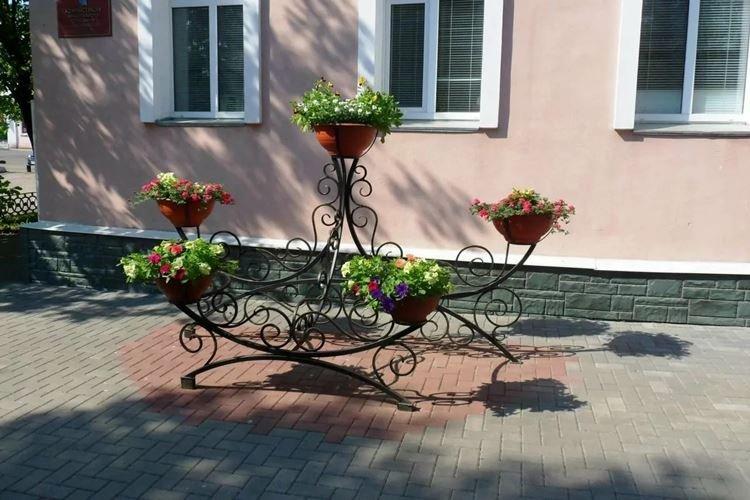
Concrete flowerpots
Concrete is inexpensive, simple, durable and practical, because it is resistant to any external influences. If tools are available, it can be given any shape and configuration. But keep in mind that concrete flowerpots will always be heavy.
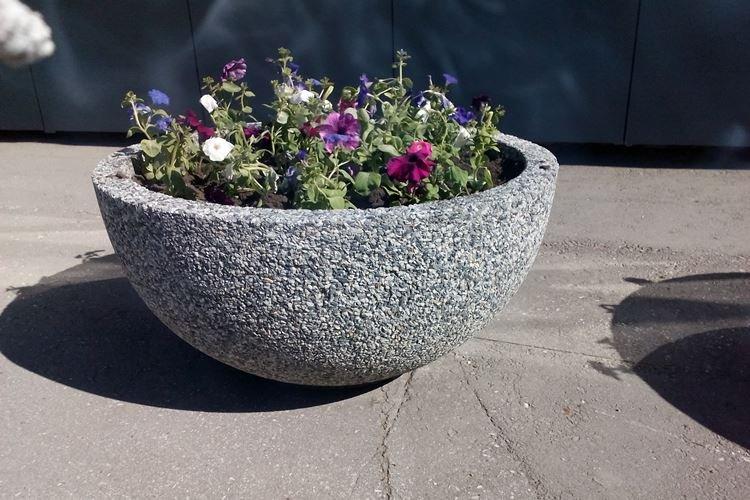
Stone flowerpots
The stone is an effective, solid, presentable and even status material. It looks noble and blends harmoniously with plots with a stone house. But it is heavy and difficult to work with, so stone flowerpots are always expensive.
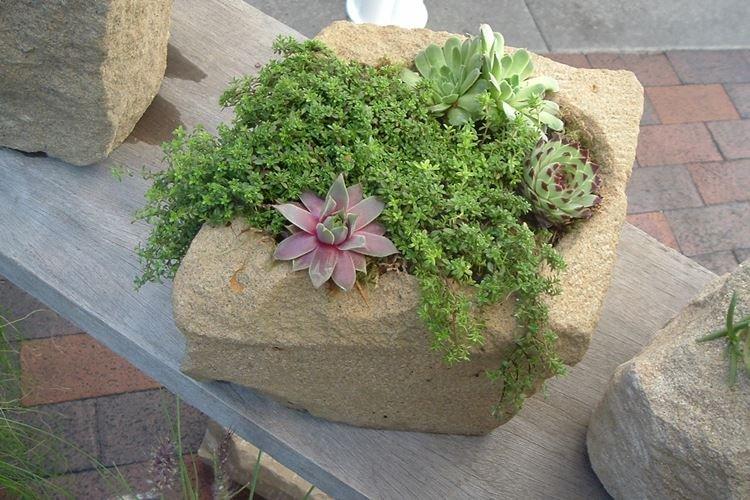
Ceramic flowerpots
Ceramic flowerpots are timeless classics that always look stylish. They can be decorated with beautiful stucco or carved decor, painted in different colors and complemented any exterior. But ceramic flowerpots are very fragile and break easily - it's not very convenient on the street.
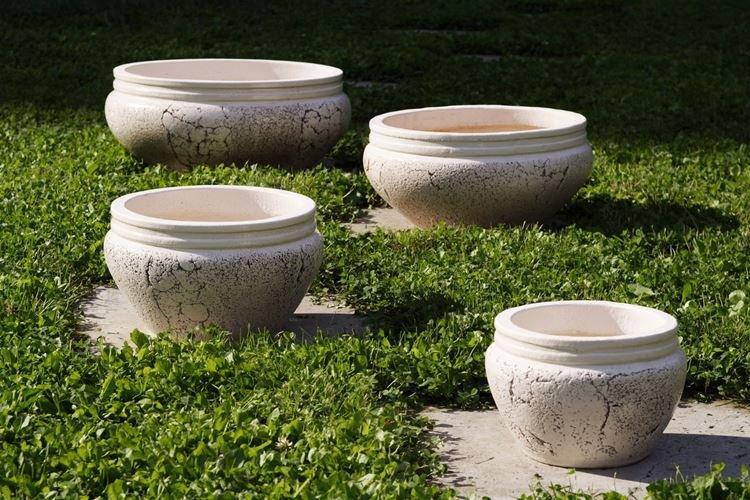
How to make flower pots with your own hands
The remnants of building materials or any little things at hand will be useful to you. Homemade containers are unique, so they look fresh and interesting. Do not forget about protection from decay, waterproofing to keep soil moisture and good drainage for ventilation.
Outdoor flowerpots made of plywood and boards
The easiest way is to make beautiful flowerpots from ordinary boards or plywood.Do not knock them too tightly back to back - this is how great natural ventilation will turn out. For impregnation, you will need oil or oily paint, which will protect against decay. To prevent the flowerpot from becoming moldy from below and growing with fungus, small decorative legs are needed.
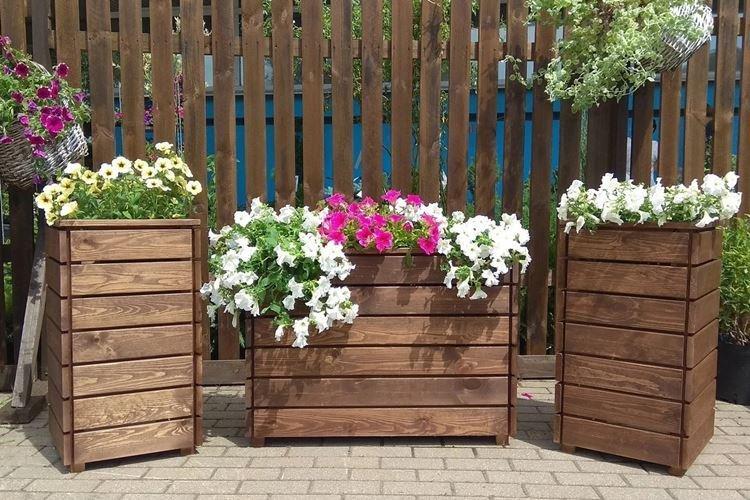
Outdoor pots made of logs
From old stumps and logs, which periodically need to be uprooted in any area, you get spectacular flowerpots. Cut the trunk, take out the inside of the wood with a drill and chisel, and leave the bark intact. If the tree is not rotten, then the process is quite laborious, but very simple.
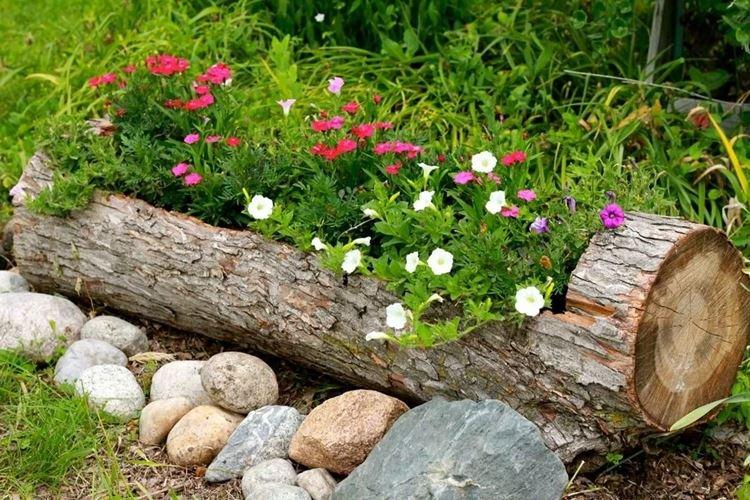
Street flowerpots from a barrel
An old barrel can simply be cut in half, drilled out, and placed on its feet. And cut as you like: lengthwise, across, even diagonally - the main thing is that the structure holds. If you need a deep roomy flowerpot, remove some of the sections from the whole tub.
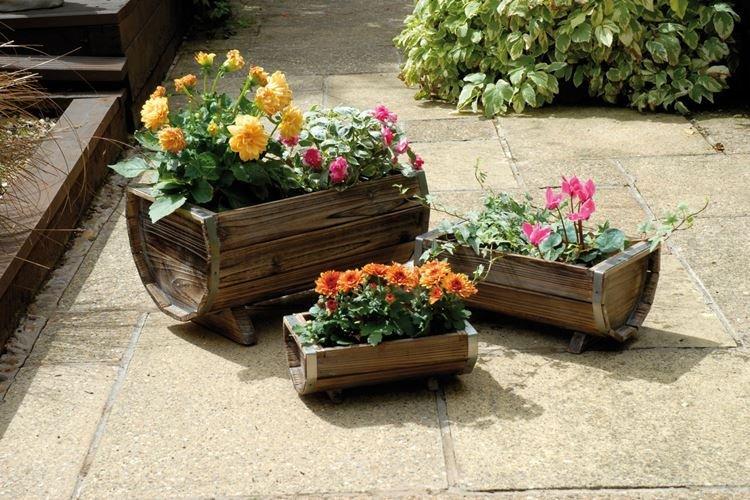
Flowerpots from wicker baskets
A wicker basket is, in fact, a ready-made flowerpot that does not even need additional ventilation. Choose a weave denser so that the soil does not fall out, is not washed out or blown out of the cracks. Like a tree, the basket should be painted with a protective agent against fungus.
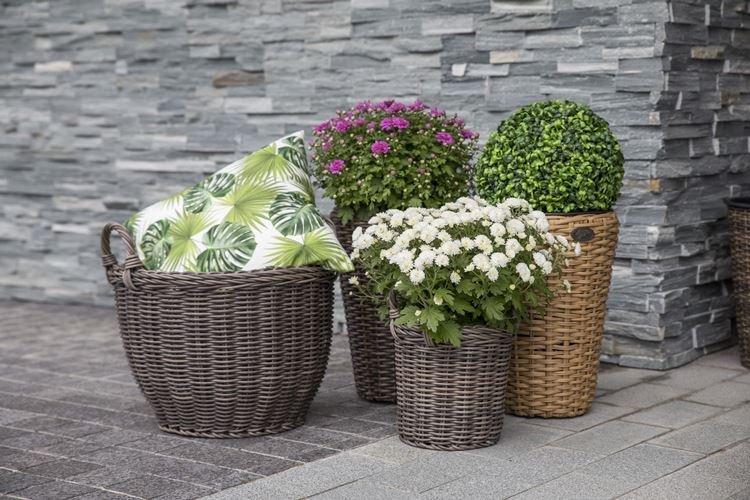
Outdoor pots from a bucket
A bucket is a very simple version of a flowerpot, because you only need to drill the drainage holes from the bottom. Their optimal diameter is 1-1.5 cm, and they should be evenly located over the entire plane. Outside, you can paint the flowerpot with moisture-resistant acrylic, sheathe it with wooden planks or decorate to your taste.
Instead of a bucket, they also use a basin, plastic bottles or a large five-liter eggplant. For the stability of the structure, put some pebbles on the bottom, and it is recommended to make the largest plastic containers stationary. To do this, they are put on metal pins dug into the ground.
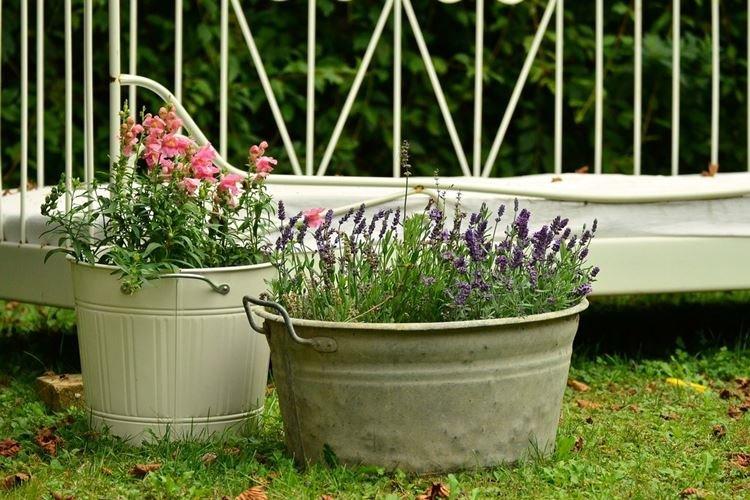
Outdoor concrete flowerpots
Concrete can be molded into any shape, making minimalist flowerpots easy to make yourself. You will need cement grade M400 or higher and clean river sand. You can take the so-called art concrete with the addition of acrylic, polymer additives or small particles for an interesting texture.
Make the main shape from ordinary packaging cardboard, gluing the construction joints with tape. Cover the bottom with plastic wrap so that the cardboard can be removed more easily and there are no irregularities left. Then pour the cement inside and push the middle with a bowl, bucket, basin, or any other container. Grind the finished flowerpot with a metal brush, rinse with water and dry.
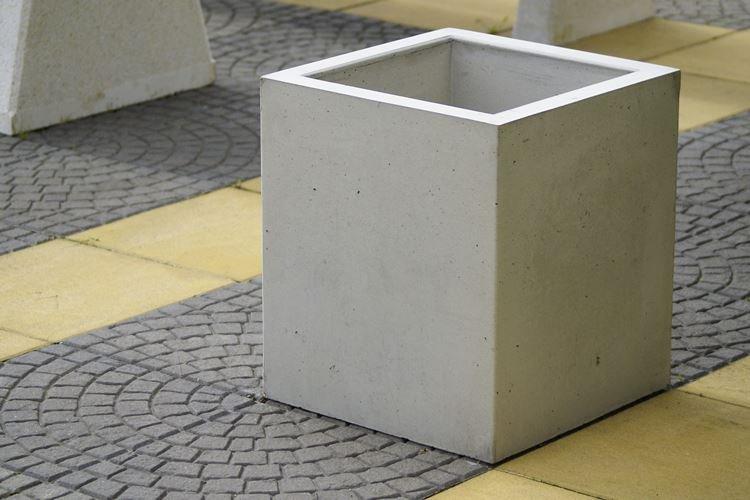
Flowerpots made of building blocks
If after the construction of the house there are several concrete blocks with large cells left, these are ready-made flowerpots. Whole walls or partitions look interesting, randomly assembled from such blocks filled with soil. Experiment with placement, angles, order, and size.
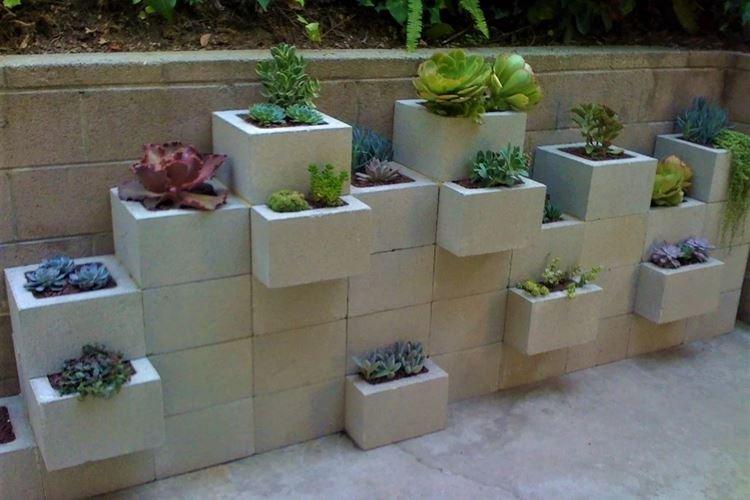
Street flowerpots made of stone
Stationary outdoor flowerpots resembling mosaics can be assembled from stone and mortar. Travertine, onyx or sandstone are best suited for this. You can cut ready-made slabs or use large natural stone. The principle is the same as when creating ordinary brickwork.
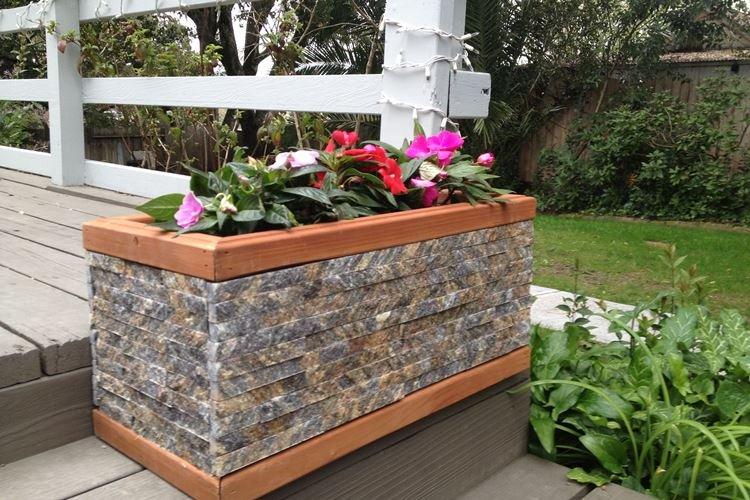
Outdoor flowerpots made of metal mesh
The construction of a metal mesh filled with stones is called a "gabion". Now they are very popular in landscape design, but you can make them yourself. You just need to install the outer and inner contours of the mesh and fill the void with stones.
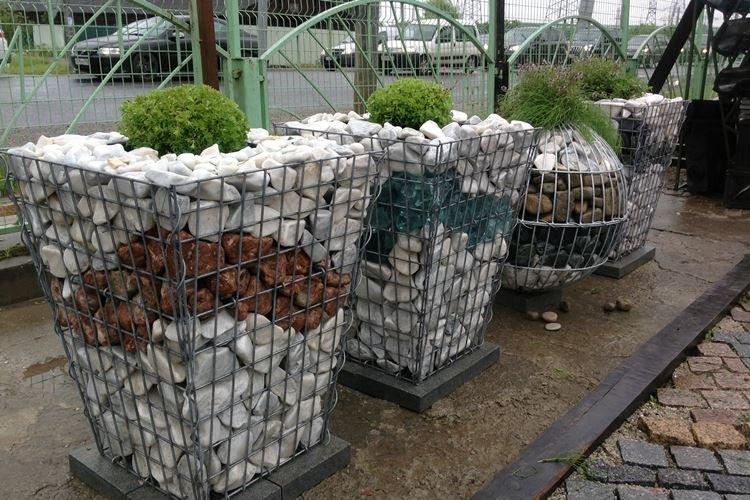
Flowerpots made of car tires
Old unnecessary tires have long been used for all kinds of crafts in the country. To make a flowerpot out of them, draw an outline, cut out the part with a rubber knife and turn the tire inside out. To keep the shape better, make cuts every 10 cm.
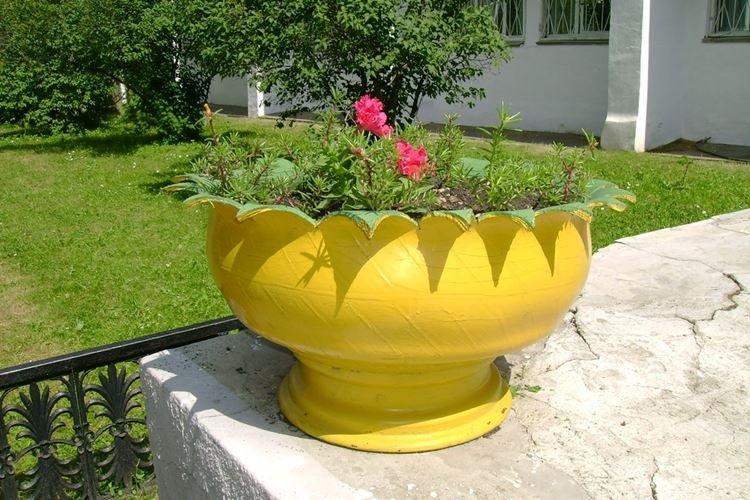
Outdoor flowerpots - photo
These are not all options for unusual outdoor flowerpots! For inspiration and creative ideas, we have collected a large selection of photos!
